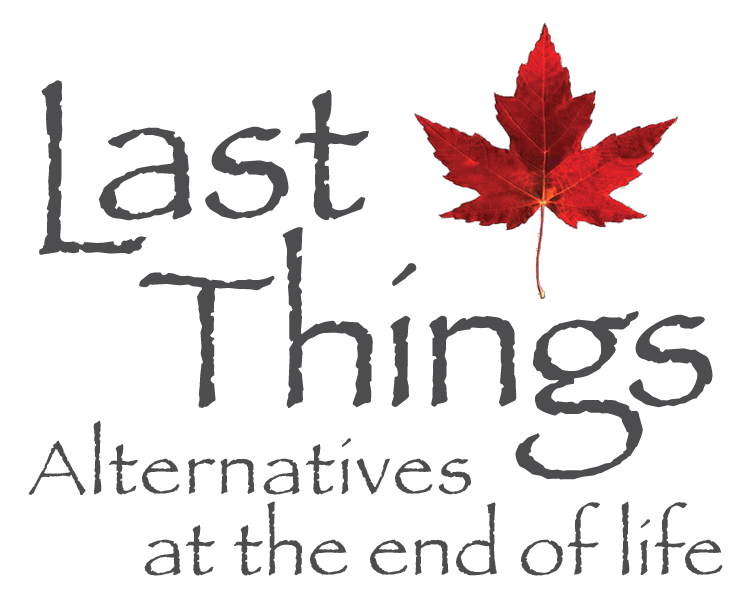Taking the time to plan ahead for funeral and after-death care can relieve stress and considerably reduce costs. Below you will find some helpful information on documentation you will need as well as various things to consider when faced with this stage of life. For additional information visit Die Well Death Education: Creating Your Own EOL Plan.
have these 3 documents in place:
1. Maine Statutory Will is a legal document by which a person expresses their wishes as to how their property is to be distributed at death, and names one or more persons, the executor, to manage the estate until its final distribution. Here is information on what happens if you die without a will.
2. Maine Advance Directives is a written statement of a person's wishes regarding medical treatment, often including a living will, made to ensure those wishes are carried out should the person be unable to communicate them to a doctor. Compassion and Choices offers easy access to the form for any state AND great advice about filling them out. Make sure the people you have nominated to make decisions for you know what you want by taking the Healthcare Decisions Quiz or the Proxy Quiz from the American Bar Association, or you can use the Best Living Will, a funny and possibly very appropriate option.
Dementia is not covered well in most advance directives but Compassion and Choices’ Dementia Values and Priorities Tool, is an easy to use online resource that can help both families and providers develop better understanding and language centered around these health conditions.
3. Durable Power of Attorney for Financial Affairs is a way to designate someone else to manage your finances in the event that you become incapacitated and are unable to make those decisions yourself. Here are instructions to help you fill out the forms for Durable Power of Attorney.
FreeWill.com does just what the name says; they guide you through the process of writing a legally valid will/trust, advance directive and power of attorney at no cost, a valuable service.
Maine Legal Services for the Elderly gives free advice on non-criminal matters to Mainers over 60. Their Elder Rights Handbook has a section on Dealing With Death.
decide and document what will happen to your body.
It is very important to write down what you want to have happen to your body after your death. This can help provide clarity at a time if emotional stress for your loved ones. A completed Death File List should be included along with your disposition instructions. The Funeral Consumers Alliance’s booklet, Before I Go, You Should Know, is a great tool to help compile your wishes and information your survivors need, and as a way to initiate the conversation about your wishes with the family. If you join the Funeral Consumers Alliance of Maine ($25 for a lifetime membership) they will send you a digital file with that booklet.
Ask the right questions and DISCUSS YOUR WISHES WITH YOUR FAMILY.
It’s a difficult conversation to get started, but it is very important for your loved ones to know what you want and to agree with your choices. Here’s a list of helpful sources:
Caitlin Doughty wrote these questions to guide you through your decision-making process and help you have a conversation with your family about your choices.
What do you fear most about dying?
What are your hopes about dying?
What would be your ideal death?
How much do you want medical intervention to play a role?
How would you like us to care for your body after you die?
What could we do at a funeral or memorial service to make you feel honored?
Go Wish is a card game designed to help you find words about what is important if you were to be living a life that may be shortened by serious illness. The game is very helpful for starting conversations and writing advance directives. An on-line interactive version is free.
The Conversation Project is a good online resource to help you understand how to get your end-of-life preferences in writing.
Compassion and Choices is the most complete website for information and guidance on any end-of-life issue including information on Voluntarily Stopping Eating and Drinking (VSED).
At Peace by Sam Harrington is an excellent book on making medical decisions at the end-of-life.
Final Exit Network offers information that supports the human right to a death with dignity. PRX Episode 17: Final Exit is a radio interview with a Final Exit Network volunteer, an elderly woman who sneaks around the country as an “exit guide.”
Death With Dignity National Center offers information on alternative options to hasten death.

